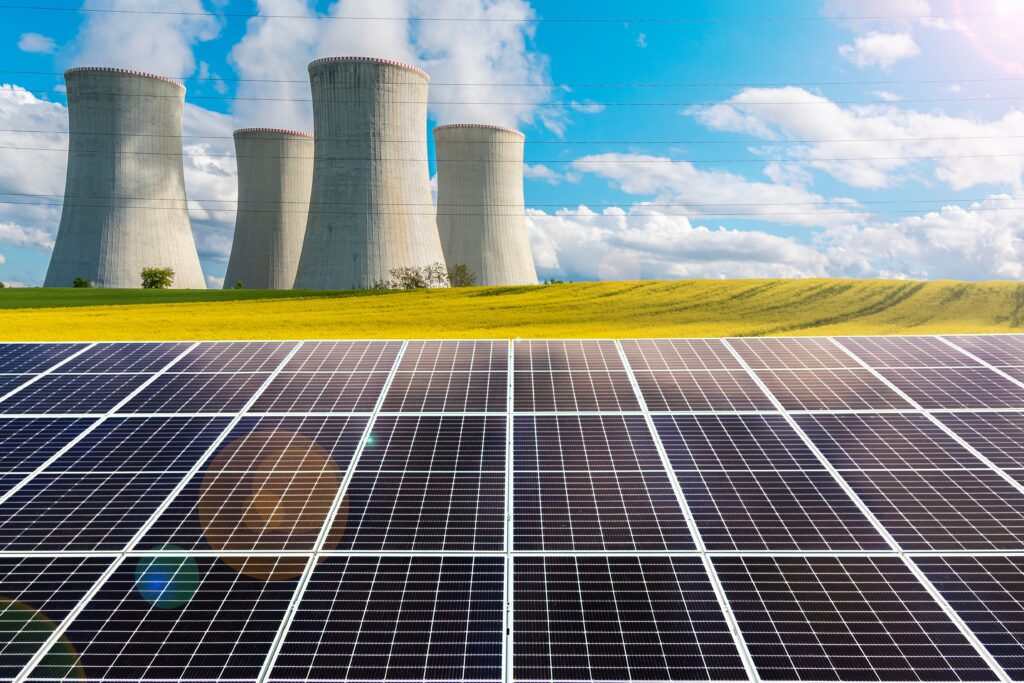Nuclear power is experiencing a revival, with new plants under development worldwide. Just ten years ago, the global nuclear industry seemed in steep decline. Safety concerns, high costs, and unresolved waste management issues overshadowed its potential. Once hailed as a revolutionary energy source, nuclear power faced growing skepticism.
Now, major tech companies like Microsoft, Google, and Amazon are investing in nuclear power. Climate goals and carbon emission pressures further fuel this renewed interest.
A History of Promise and Setbacks
When nuclear power emerged in the 1950s and 1960s, it promised revolutionary energy potential. A kilogram of uranium could generate 20,000 times the energy of coal. Governments embraced it as a transformative energy solution.
However, public fear grew after disasters like Chernobyl in 1986 and Fukushima in 2011. Chernobyl spread radioactive contamination across Europe, stalling the industry’s growth. Fukushima reignited safety concerns, leading Japan to shut down reactors, with only 12 restarting since. Germany abandoned nuclear power entirely.
Between 2011 and 2020, global nuclear capacity dropped by 48GW, according to the International Atomic Energy Agency. Yet, some countries like China expanded nuclear programs. China increased its reactors from 13 in 2011 to 55 today, with 23 more under construction.
Renewed Global Interest
Developed countries are revisiting nuclear power to meet energy demands and climate targets. The Paris Agreement’s goals and record-high global temperatures intensify the urgency. Geopolitical tensions, like Russia’s invasion of Ukraine, emphasize the need for energy security.
South Korea reversed its decision to phase out nuclear power and now plans reactor expansions. France, already reliant on nuclear for 70% of electricity, aims to build up to eight new reactors. At COP29, the US committed to tripling nuclear generation by 2050, joining 31 other nations in this goal.
The US and UK announced partnerships to accelerate nuclear technologies. This aligns with agreements from COP28 to advance nuclear power as a low-emission energy source.
Tech Companies Driving Demand
Tech companies are spurring demand for clean energy due to AI’s rising power needs. Data centers already consume 3.5% of US electricity and may exceed 9% by decade’s end. Microsoft signed a 20-year deal to purchase power from Pennsylvania’s Three Mile Island nuclear plant. This move highlights nuclear power’s appeal as a clean, reliable option.
Google and other companies are exploring Small Modular Reactors (SMRs), designed for affordability and ease of deployment. These smaller reactors use standardized components and can serve areas with high energy demand. Over 80 SMR designs are in development, though their commercial viability remains unproven.
Challenges Ahead
Despite progress, nuclear power faces significant challenges. Building new plants remains expensive and slow. For example, the UK’s Hinkley Point C project is five years behind schedule, with costs exceeding initial estimates by £9 billion ($11.5 billion). Similarly, Georgia’s Plant Vogtle reactors opened seven years late and cost more than $35 billion—double the original budget.
SMRs may offer a faster, cheaper alternative, but their economic feasibility is untested.
Proponents argue nuclear power is essential for global climate goals. Rod Adams of Nucleation Capital highlights nuclear fission’s safety and reliability. He sees it as a key element of a sustainable energy future. Critics like Professor M.V. Ramana from the University of British Columbia disagree. They consider nuclear power one of the most expensive low-carbon energy sources and favor investing in cheaper alternatives for greater emissions reductions.
The Radioactive Waste Dilemma
A major challenge is managing radioactive waste, hazardous for thousands of years. Geological disposal—burying waste in sealed underground tunnels—is one solution. Finland is the only country with such a facility. Environmental groups question its safety and long-term effectiveness.
How countries address waste disposal will influence nuclear power’s future. The debate over waste management remains a critical hurdle for the industry.
As nuclear power evolves, its role in combating climate change and ensuring energy security will depend on overcoming these challenges.
